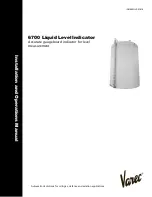
A-9
A1
A
A1.2
IEEE 488.2 STANDARD
A1.2.1 IEEE 488.2 Message Formats
The IEEE 488.2 Standard was established in 1987 to standardize
message protocols, status reporting and define a set of common
commands for use on the IEEE 488 bus. IEEE 488.2 devices are
supposed to receive messages in a more flexible manner than they
send. A message sent from GPIB controller to GPIB device is called:
PROGRAM MESSAGE. A message sent from device to controller
is called: RESPONSE MESSAGE. As part of the protocol
standardization the following rules were generated:
(;)
Semicolons are used to separate messages.
(:)
Colons are used to separate command words.
(,)
Commas are used to separate data fields.
<nl>
Line feed and/or EOI on last character terminates a
'program message'. Line feed (ASCII 10) and EOI
terminates a RESPONSE MESSAGE.
(*)
Asterisk defines a 488.2 common command.
(?)
Ends a query where a reply is expected.
A1.2.2 IEEE 488.2 Reporting Structure
With IEEE 488.2, status reporting was enhanced from the simple
serial poll response byte in IEEE 488.1 to the multiple register concept
shown in Figure A-3. The IEEE 488.2 Standard standardized the bit
assignments in the Status Byte Register, added eight more bits of
information in the Event Status Register and introduced the concept
of summary bits reporting to the Status Byte Register. The Status and
Event registers have enabling registers that can control the generation
of their summary reporting bits and ultimately SRQ generation. Each
488.2 device must implement a Status Byte Register, a Standard
Event Status Register and an Output Message Queue as a minimum
status reporting structure. A device may include any number of
additional condition registers, event registers and enabling registers
providing they follow the model shown in Figure A-3.
















































